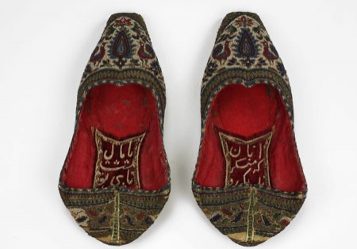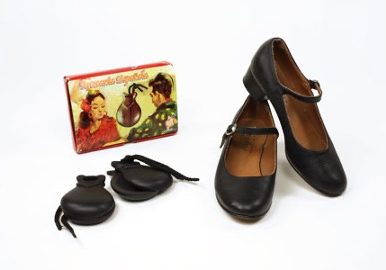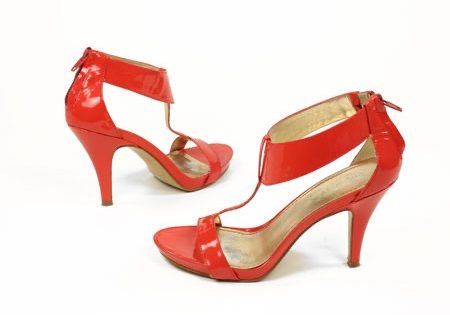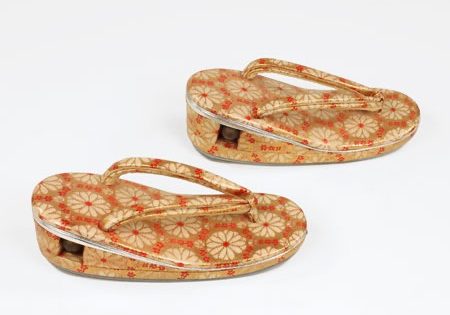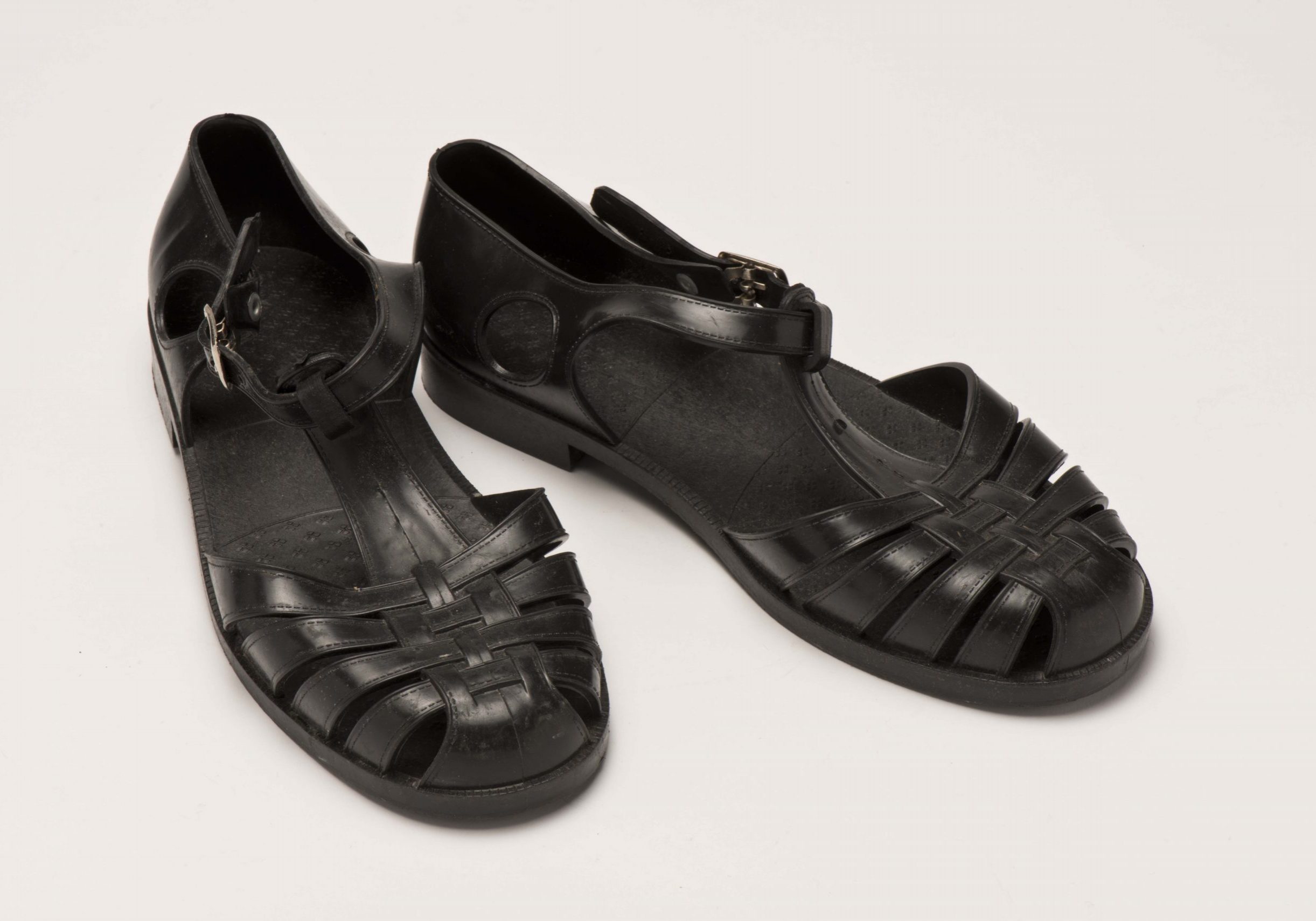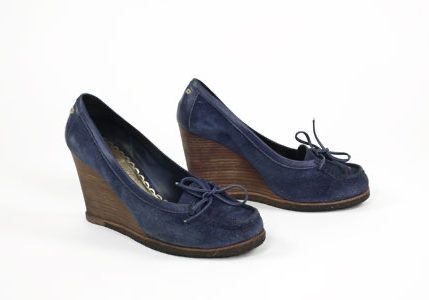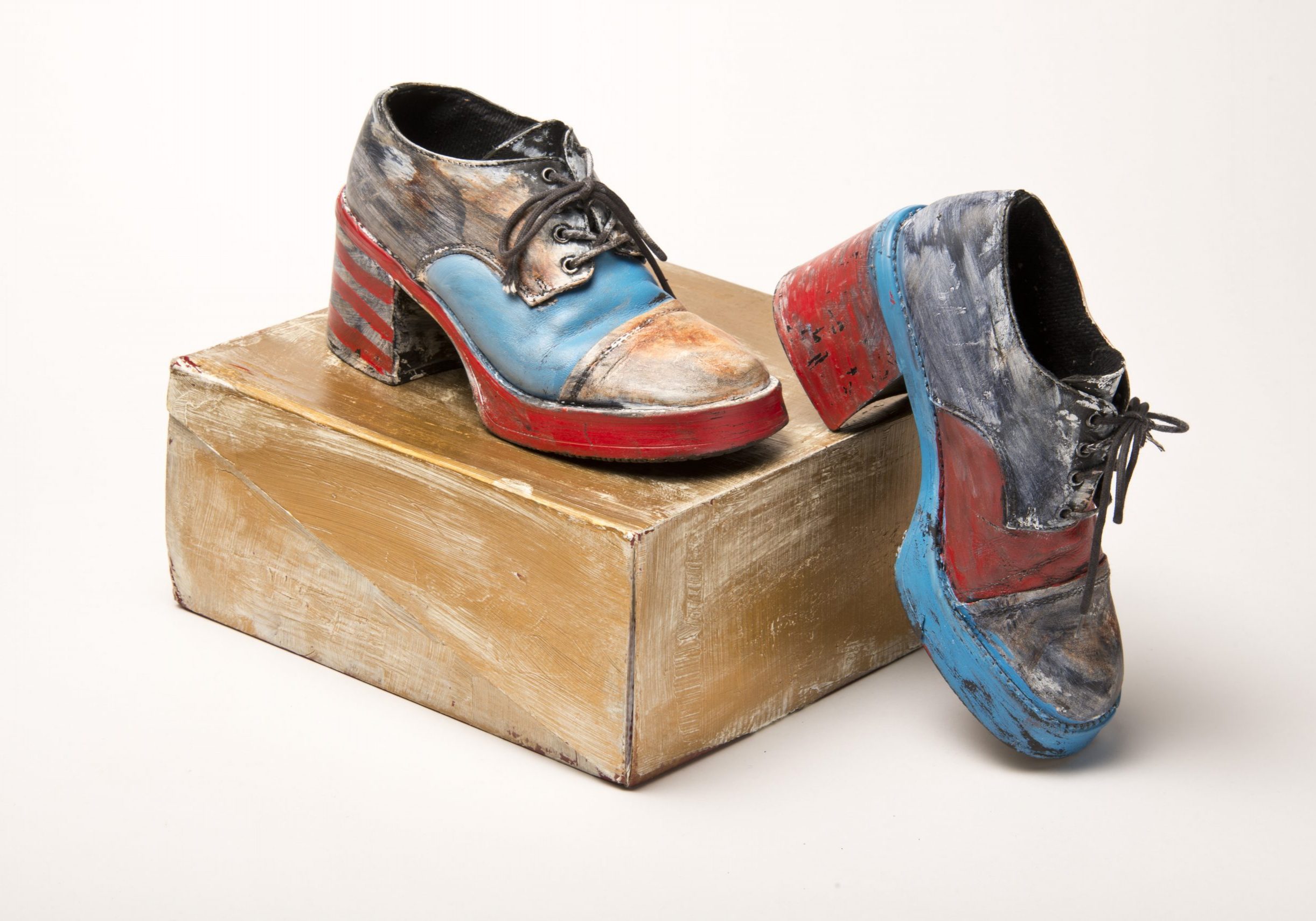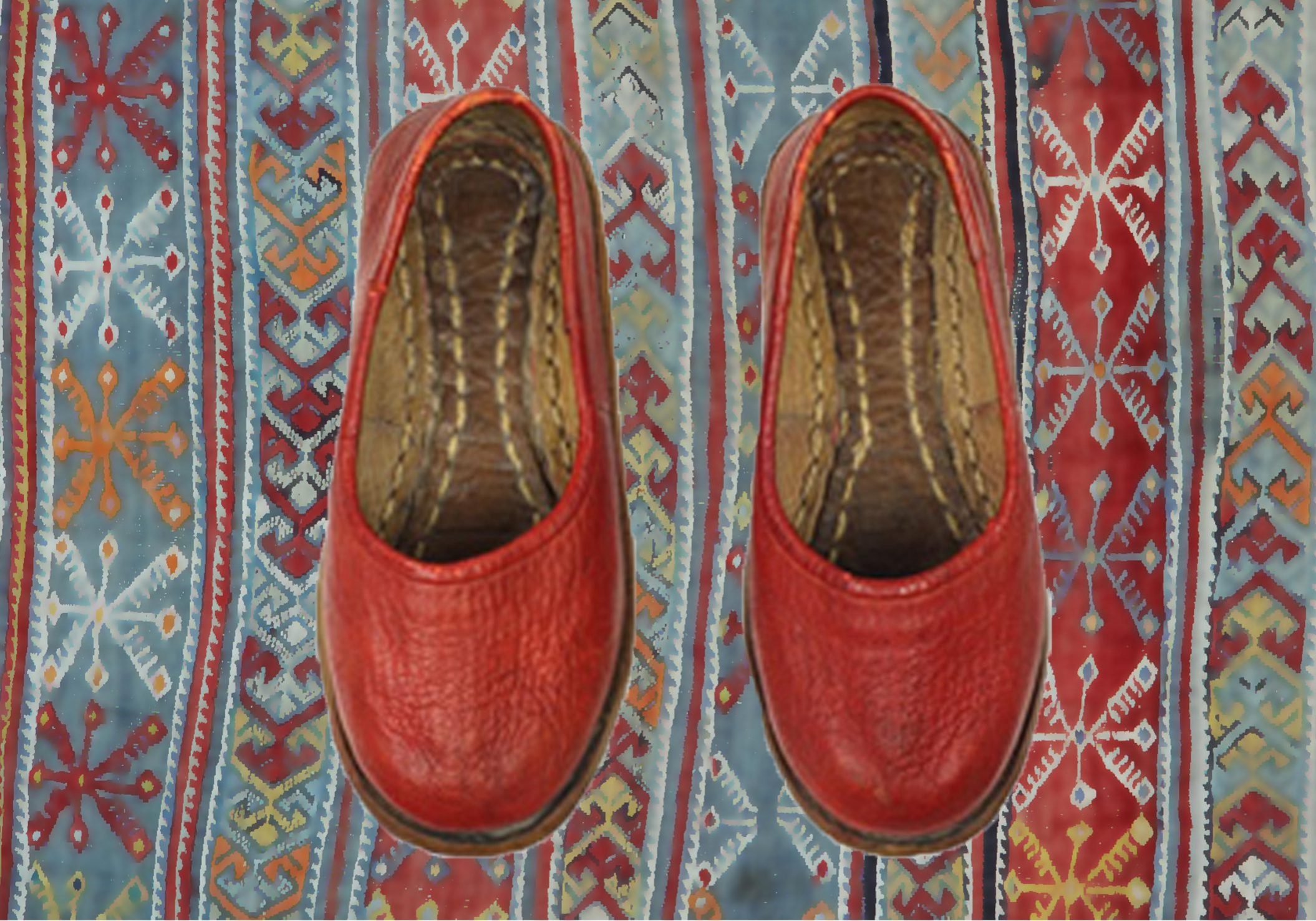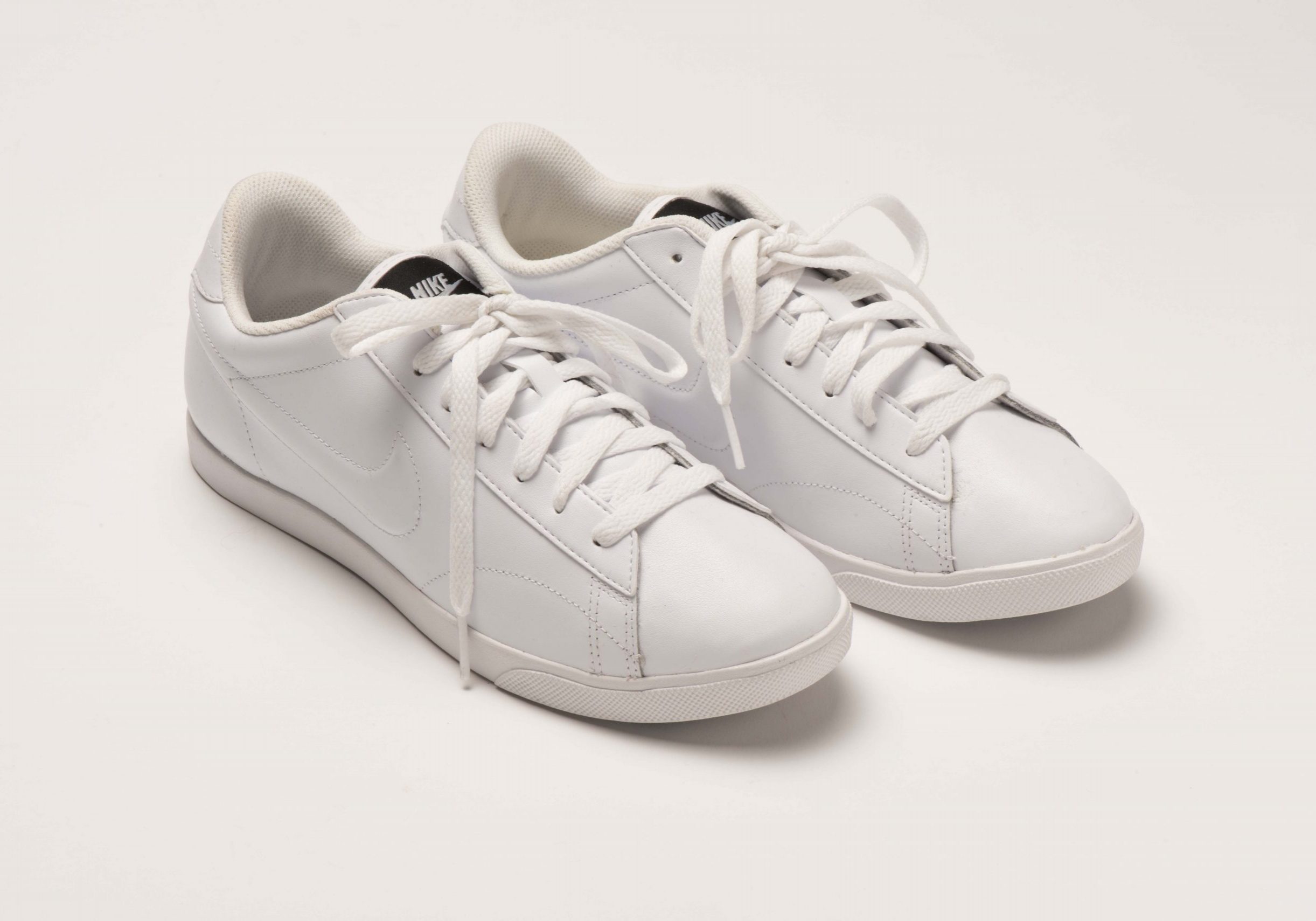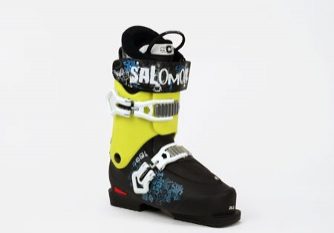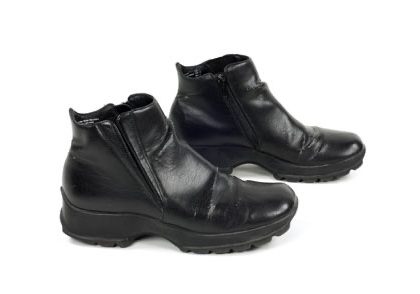Cooverji the Village Cobbler/Baby Black Shoes
Teenaz Javat
Summary:
When Teenaz Javat was a child in India, her summer sandals were made by a cobbler in her grandmother’s town on the shore of the Arabian Sea. She married a Pakistani man and moved to his country. Uncomfortable in Pakistan, she and her husband and small daughter decided to immigrate. Her daughter wore these baby shoes when they passed through Immigration in Toronto. Now every year, they hang on the family’s Christmas tree, a symbol of distance travelled and independence.
Story:
With a white shirt draped over a bent-over back, his scrawny legs sticking out of loose-fitting khaki shorts, a pointy cap covering his head, and hardy leather chappals on his feet, Cooverji the village cobbler would come around to our Mamaiya’s house.
Mamaiya is Gujarati slang for maternal grandma. Five kids- all under 10- and a sprinkling of stay-at-home aunts would descend on the ancestral home every summer. We escaped the oppressive tinderbox of Mumbai by taking the steam engine-pulled train just 200 km north of Mumbai. Just in time for the mango season, we would arrive in Udvada- a temple town hugging the shores of the Arabian Sea.
Cooverji, who went by one name only, lived with his wife in a mud-caked hut by the sea. A Muslim cemetery and a Hindu crematorium not far away deterred us from going to his house. He was a mochi, a cobbler who works with leather-,quite low down in India’s caste system. He could only live on the outskirts of the village.
But this did not seem to bother Mamaiya. She was a widow who lost her husband -a practising Zoroastrian priest- in Lahore during India’s messy partition. Often shunned for being son-less, she raised and educated four daughters by herself and now looked forward to her five grandkids visiting her every summer.
She did not waste time debating the merits of the caste system. Cooverji was welcome in her home.
Cooverji’s arrival signalled new leather flip-flops for all. He would take our foot measurement on old sheets of calendar paper. We each had to stand with our feet flat on the paper. He would meticulously draw an outline of our foot, scrawl our name on the sheet of paper, and after having chai and roti, gather his cobbler kit and vanish.
Halfway through the summer, there would be no sign of Cooverji or the promised flip-flops. Mamaiya would send him a summons through passers-by, usually fisher folk on their way to the sea. He would send word back the same way-definitely by daybreak tomorrow he’d be there!
Still no Cooverji.
A week later, a firmer message would go. Mamaiya: The kids are outgrowing last year’s flip-flops. They need them before summer is out.
Cooverji: I will be there tomorrow-this time for sure; he’d message back often through the same medium.
Then, almost a month into our vacation, like magic Cooverji would come by with five pairs of spanking new leather flip-flops. Tough Buffalo hide for the boys, softer cow-hide for the girls.
We scampered off in our slippers. Mamaiya paid him his dues.
He dickered for a tip, which came in the form of more hot chai and rotis. We said goodbye. We knew we’d see him ten months later, as we’d soon outgrow our leather flip-flops by next summer.
Baby Black Shoes
Baby Black Shoes – they hang every year on my Christmas tree.
A teeny-tiny pair of black patent leather Gerber non-skid shoes.
I had never heard of Gerber shoes before; I thought Gerber only sold baby food and insurance. A cousin- a doctor who obviously knows the value of good shoes- presented them to me as a gift for my daughter. I saved them to put on her 8-month-old feet on June 22, 1997. That was the day we left our home country and landed in Canada.
Swaddled in a blanket, snuggled in a stroller, the black shoes found a way of poking out of the blanket. Black eyes -book-ended by black shoes – were all the Canada Border Services immigration officer could see when he glanced at my load. Three bags, a box, a husband and a baby were what we brought with us to start a life here in Toronto.
“Cute,” he said. “How old?”
“8 months,” I said.
“Cute shoes – they match her eyes. What’s her name?”
“Sherezade,” I replied.
“Princess,” he smiled.
“Yes,” I said. “It also means independent and free,” I added.
Welcome to Canada! This conversation plays out in my mind over the 15 Christmases that I have spent here, digging out the shoes to grace my tree. I now have two children. My son is 11. My daughter is 15. Like most teens, she sometimes takes her freedom for granted. It is not an entitlement that comes easily, I caution. Having had it in India and lost it briefly during the time I lived in Pakistan, I treasure it here in Canada. Savour it. Guard it with your life, I tell her.
Use it responsibly.
Be thankful for it.
And just like your first pair of shoes, keep it safe.
TEENAZ JAVAT is by blood Indian, by bond Pakistani and by choice Canadian. Among many of her duties, Teenaz writes headlines for a living at the Canadian Broadcasting Corporation. She lives with her husband and adult children in Mississauga, Ontario.
Read Other Stories from this Author
I Missed the Bus and Survived
Like most students, Teenaz Javat usually wears chappals, sandals. The remote campus of New Delhi’s Jawaharlal Nehru University...
Window to the World
When Teenaz Javat came to Canada 15 years ago with her husband and infant daughter, she was made to put her career...
